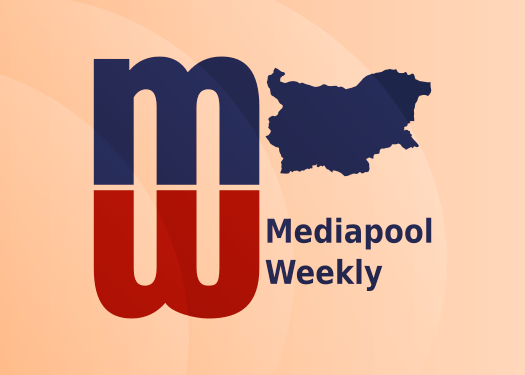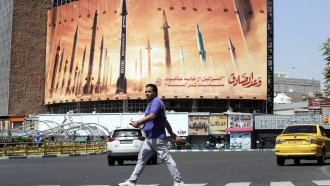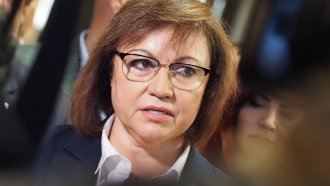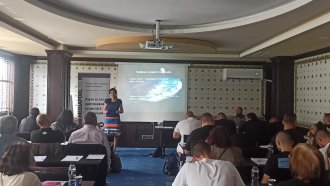Opinion:
PR unhinged: A week of three unbelievable PR stunts and one failed attempt to silence a top justice reporter
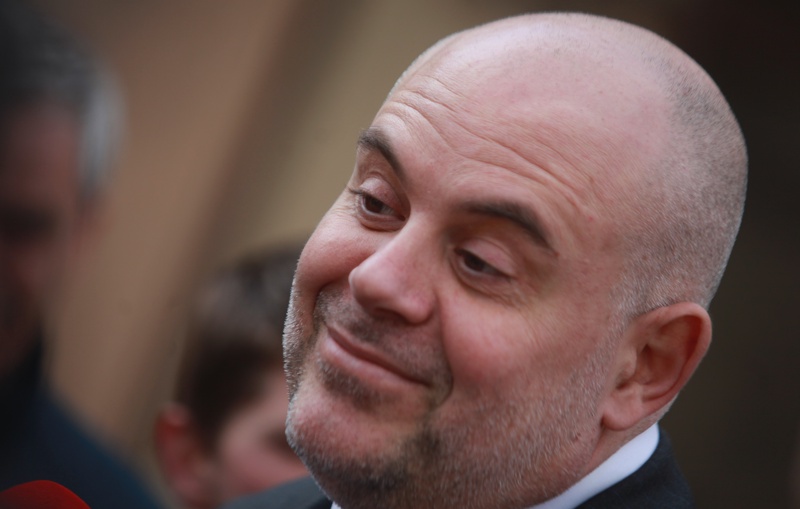
The week was marked by several chaotic PR stunts, whose ridiculousness was matched only by the desperateness they were conceived from. A story of a coup against the government provided the essence of drama, high-end conspiracy and existential threat to the state. Russian spies suddenly came into the mix and were arrested. Indictments were recited to the media by the unopposed candidate for future Prosecutor General, Ivan Geshev. Meanwhile, the protests against his candidacy were infiltrated by paid provokers. Finally, a top justice journalist at the Bulgarian National Radio was taken off the air, then brought back on in less than a day, appointed a shadow reporter “to ensure unbiased reporting”, while the acting director, who issued the orders, and was on the job for a day or so, resigned.
Except for the attempt to silence critical reporting of Geshev on the national radio, the other stunts were designed to somehow both help Ivan Geshev’s image for Prosecutor General while helping to improve GERB’s image in Sofia. All backfired one way or another although actual damage could not be known before the local elections and the procedure for appointing a new Prosecutor General are over. After each PM Boyko Borissov made sure to express his bewilderment and clarify he had no knowledge or idea who is behind each.
The plan, which backfired most dramatically was the attempt to take Silvia Velikova of the air at BNR.
Velikova has been BNR’s legal reporter for fifteen years, and is one of the rotating hosts of the radio’s morning show. She is famous for her crisp, detailed and – a rarity in the Bulgarian media world – critical reporting, especially towards the prosecution. Velikova is one of the toughest journalists, covering the legal system in Bulgaria and never shies away from asking uncomfortable questions and insisting on getting answers. She told TV+’s Vesselin Dremdzhiev that “apparently someone does not like the way I cover Ivan Geshev’s unopposed candidacy”. Indeed. And BNR attempted to take her off the air, after pushing her former boss - who reportedly refused to do so - into retirement.
When Silvia Velikova came back from vacation this week, she was immediately told to stay off the air until the procedure for choosing (rather, appointing) a new Prosecutor General is over, which she refused. She was told she will no longer be covering the justice system or host the morning show. It was essentially a firing, minus the administrative hustle. Velikova said she was offered to train interns in BNR’s Stara Zagora division, which she refused.
The story broke Thursday around noon and was met with grave outrage, both from collogues and citizens. By the end of the day BNR changed its position, tried to underplay it, and came up with a slow-witted “solution” to both satisfy Geshev and try and tackle the public backlash the initial story produced: namely to appoint a second reporter to cover the justice system along with Velikova, in order to guarantee “pluralism”. The radio kept playing the Beatles’ Let it Be over and over: a song that has been BNR’s signature when the reporters are contemplating protests or similar. Journalists gathered in support for Velikova in front of the radio at noon the next day. A little later the acting director, who made the decisions resigned.
On Friday afternoon Prosecutor General Sotir Tsatsarov appointed an investigation, which would be headed by Geshev, to find out why BNR’s Horizont program (the news section) was off the air five ours in the morning. On Thursday, even after Velikova was reinstated on the air, she still would not be hosting the Friday morning show, as she was supposed to. None of her collegues agreed to host the Friday morning show in her place, and her producer said he will not produce either. Later, around 9:00 PM he radio announced it will turn off all its transmitters to undergo prophylaxis. Between 6:00 AM and 11:00 PM.
Context
The attempt to silence a prominent reporter, critical of Geshev falls in a cross section between two equally important goals for GERB. The two together, though, seem impossible to co-exist.
Those in power and the prosecution want Geshev to become Prosecutor General, thus keeping and tightening the status quo. But ruling party GERB and PM Boyko Borissov miscalculated two important factors.
One, Geshev’s nomination is a grave scandal in the eyes of the liberal and liberal-right in Bulgaria. It is a clear declaration by those in power that there will be no reform in the prosecution whatsoever in the coming seven-year General Prosecutor mandate. Naturally this would erupt a protest wave (which it did). Geshev is seen as a brute – and proud of it. The people putting him forward (and having him run unopposed) should have been well aware of the inevitable backlash this would bring. But given the chaotic PR stunts that emerge every day, they seem to have been utterly surprised.
Two – and this is just as important – for the first time in well over a decade GERB must fight in order to win Sofia in the local elections. This is extremely important for GERB, as loosing Sofia will almost certainly mean GERB’s undoing. But the elections for both mayor and Prosecutor General take place late October and any discontent at the way Geshev’s nomination is handled inevitably will affect GERB’s votes in Sofia. The stakes are high but GERB seems unable to choose its fight: Sofia or Geshev. The ruling party is arguably in the toughest spot it has ever been. And is forced to juggle two inconsistent PR strategies: disassociating itself from the status quo (to soften up Sofia voters), while at the same time being and campaigning for the status quo (to get Geshev’s nomination through and convince the public somehow that he is an acceptable candidate).
Someone working for GERB’s PR must have realized that the innersection between showing off Geshev in a good light and help with the local elections, particularly in Sofia, is for GERB to quickly adopt an anti-communist image. This is an important issue among a key number of Sofia voters, and a smart way to draw (the arguably only conceivable) distinction between GERB’s candidate (Yordanska Fandakova, who is seeking a fourth term) and BSP’s Maya Manolova (although Manolova is running as an independent, her political career is in BSP and the party has supported her candidacy). Fandakova and Manolova will likely reach a second round of elections and Manolova is heavily relying on protest vote against Fandakova. Those same voters, however, are often very reluctant to vote for BSP, because it is the successor of Bulgaria’s totalitarian regime Bulgarian Communist Party. So the obvious way to tackle the otherwise identicle candidates is to play the anti-communism card.
Item one: Russian spies to show where we stand

Early this week Nikolay Malinov, who heads the organization Russophiles was arrested and charged with being a foreign (Russian) spy. Ivan Geshev held a press conference, where he laid out details about his alleged crimes. But most of the facts he presented are old at least five years, are well known and have had lengthy coverages in the media in the past. So, why is the Prosecutor’s Office suddenly interested? Save of course for a useful photo-op of Geshev catching Russian spies? Note that for a spy Malinov is hardly masking his convictions. Not only does he head an organization, whose very name is explicit enough in its standing, he is well known and vocal about being very pro-Russian. But then again, who in Bulgaria isn’t? Russia hardly needs spies in Bulgaria, the whole of its institutions bends over backwards to please (or at least – not upset) the Russians: embarking on large-scale energy projects like NPP Belene, South Stream and Turkish Stream are only some notable examples. Bulgaria is almost entirely reliant on Russian gas. Bulgarian citizenship is the preferred way for Russians, especially the shadier ones, acquire a European passport, and this is no coincidence: in fact, it is part of an elaborate corruption scheme for citizenship trade, which has been going on for years. Bulgaria was the only European country not to banish Russian diplomats amid the Skripal scandal. The list goes on.
Item two: A coup to define the enemy

A story from a well-known unreliable source blasted the media sphere with the “news” that a coup is underway to take down the government. The same person, Yordan Bonev led the “counter-protests” during the over-year-long protests against former PM Plamen Oresharski’s government, which erupted after the appointment of Delyan Peevski for head of the national security agency. Back then Bonev caimed the same: a coup was underway, and was paid for by Borissov. Now only the roles are reversed: someone else is paying for Borissov to be taken down. The claims today (as in 2014) are obvious lies, but were taken on and repeated by government-friendly media and some law enforcement agencies. It is arguably a very sloppy attempt at PR. Or it would have been if the media had done their job in collaborating the story, or at least give background on the individual (which they didn’t).
Item three: Discredit protests against Geshev
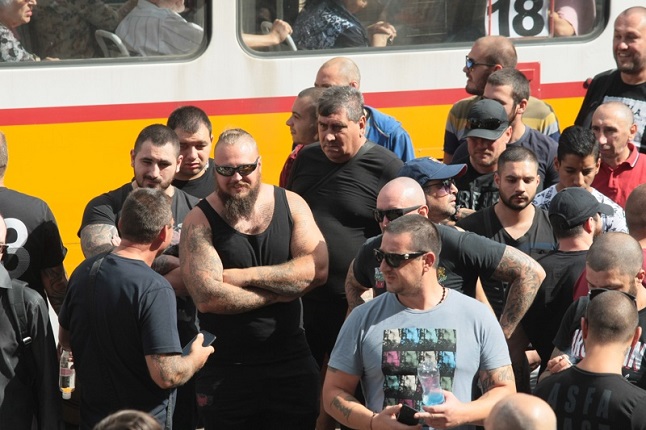
An important classic with a new twist. This week was the second protest against the nomination of Geshev from Prosecutor General. The first was about two months ago and attracted over 3500 people. The turnout this Tuesday was just as large but with a notable addition: buses full of people from across the country were carried to take part in the protest. Most of them were neo-nazis, football ultras and other heavy weight men in black t-shirts. Interestingly enough, the other large chunk of people were Roma, who marched hand in hand with the skinheads in the protest. The police were informed by multiple protesters that these people are obviously groups, paid to be there, likely to provoke violence. But the police answered that since everybody claims to be there for the protest against Geshev, i.e. are not counter-protesters – they could not intervene. Multiple reporters asked many of them about why they are there, no one could give a clear answer. Apparently, the form of the counter-protester, which we have come to known all to well, has now evolved into a protester, infiltrating and re-branding – so to speak – protests. Having apparent street fighting experience and incline also comes handy.
So it goes
Ivan Geshev himself has been working hard at his own PR, too. Several letters of support emerge every week from various institutions: from university headmasters, to law enforcement agencies, government-friendly media, and frankly anyone he could think of. The Supreme Justice Council (which is the body electing the Prosecutor General) has also expressed passionate support for Geshev. Gehsev is the current Prosecutor General Sotir Tsatsarov’s protégé, but notably vicious and more radical in his understanding of the Prosecutor’s Office as a powerful instrument for both protection (of friends) and attack (on enemies). He was trained of the police academy, the former (and famously unreformed) institution, which trained the secret police during communism.
His hallmark is flashy over-the-top raids, which almost always end up collapsing in court with no convictions and suits for human rights violations in the European Court for Human Rights. Geshev means those in power are doubling down on how the Prosecutor’s Office has been operating over the past seven-year mandate. Which coincidently is the most problematic area in the justice system, and the one most desperate for reform, according to the European institutions, monitoring the justice reform in Bulgaria for the past decade. Or lack thereof.
This is the bottom line: this prosecution and the way it is used and managed together with its satellite semi-law enforcers – always bordering legal procedure – institutions such as the specialized court and the Anticorruption Commission – is what holds the power together as we know it over the past decade with GERB.
In other news:
The Association of European Journalists start #NoPornJournalism initiative

Last week the government-friendly extreme tabloid PIK published pornographic images of Democratic Bulgaria’s candidate for mayor Sofia, Borislav Ignatov’s girlfriend. Ignatov himself said the images are about ten years old. They were taken by her then-boyfriend, who released them without her consent after they broke up. The woman has long since informed the police of the crime and the photos were part of the investigation’s file. Some speculate that someone from the police leaked the images to PIK.
The publication was met by an almost unprecedented public outrage. PIK is known for outrageous publications, unhinged smear campaigns and no regard for privacy, decency etc. The tabloid is virtually constantly sued in defamation trails, which it loses. But this publication finally provoked a public-wide revoke.
Many political parties declared they will not be advertising with PIK for the local elections campaign, including GERB for the first time.
At the same time media outlets across the media field came out with declarations against “porn journalism” and the Association of European Journalists started the initiative #NoPornJournalism.
It is interesting to observe whether today’s declarations by politicians sustain over time. PIK is one of the important outlets for those in power, the prosecution, the Anticorruption Commission and so on. As AEJ points out,
“This is far from the first example of ethical and professional standards’ violation on behalf of the publication which enjoys the favor of politicians and representatives of the judiciary.
The Association of European Journalists-Bulgaria insists that the political subjects protecting PIK take responsibility. The PIK website has become a semiofficial organ, pouring dirt on all critics of the authorities.”
In the declaration AEJ pledges to collect and publish information about parties and institutions, which have standing contracts with PIK and if it receives taxpayers’ money though them.
Ministry of Environment closes down second TPP linked to Hristo Kovachki
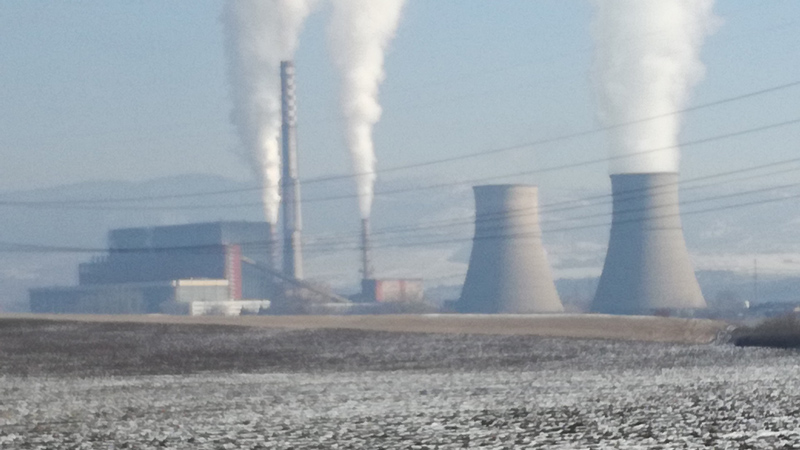
The Ministry of Environment has suspended a second TPP, linked to energy mogul Hristo Kovachki in less than a week. This is rather peculiar, as Kovachki-linked TPPs have never had any problems with state institutions, regardless of the multiple signals for wrongdoing by NGOs.
Last week the ministry suspended work in TPP Brikel for unauthorized burning of biomass. TPP Brikel admitted to the fact but claims it has done so with the knowledge and permission of the state inspectors. TPP Brikel is one of the heaviest polluters in the Stara Zagora region and is a frequent part of reports by NGOs about air pollution. TPP Brikel is also one of the plants, included in the second penal procedure the European Commission has inniciated against Bulgaria for air pollution.
The second suspension – of TPP Bobov Dol was met with outrage and threats of lawsuits from the plant’s management.
Ключови думи
За честна и независима журналистика
Ще се радваме, ако ни подкрепите, за да може и занапред да разчитате на независима, професионална и честна информационно - аналитична медия.
 0 коментара
0 коментара
Екипът на Mediapool Ви уведомява, че администраторите на форума ще премахват всички мнения, съдържащи нецензурни квалификации, обиди на расова, етническа или верска основа.
Редакцията не носи отговорност за мненията, качени в Mediapool.bg от потребителите.
Коментирането под статии изисква потребителят да спазва правилата за участие във форумите на Mediapool.bg
Прочетете нашите правила за участие във форумите.
За да коментирате, трябва да влезете в профила си. Ако нямате профил, можете да се регистрирате.
